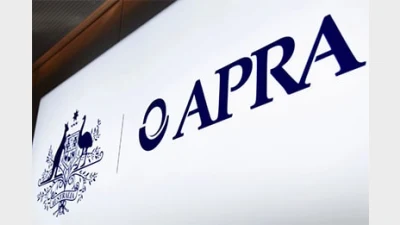Asset growth is being outpaced by fund expenditure, data reveals



Data published by the prudential regulator has revealed that super sector spending is outpacing asset growth.
According to new data from the Australian Prudential Regulation Authority (APRA), total industry expenditure was $12.7 billion for the year ending June 2024, an increase of 15 per cent on the prior fiscal year.
In its latest annual bulletin for FY2023–24, APRA revealed that this increase “slightly” exceeds growth in assets across the industry over the same period.
Breaking this down, marketing spend grew by 14.48 per cent in FY23–24, totalling $482.51 million, while administrative services expenses saw an almost 10 per cent lift.
Notably, total advice expenses saw a 27.96 per cent surge over the period, while spending on member services increased by 10.29 per cent.
Interestingly, total trustee board expenses fell from $135.44 million to $118.48 million over the 12 months to June 2024, down 12.54 per cent.
Commenting on the findings, APRA deputy chair Margaret Cole said that trustees must maintain the responsibility of managing and protecting the retirement savings of millions of Australians.
“Increased transparency and scrutiny of super fund expenditure are crucial since trustee decisions have direct implications for their members,” Cole said.
“The first-time release of fund-level insurance data will enhance transparency and hold trustees and insurers accountable to improve the value and service members receive.”
The new findings come after APRA confirmed it will use the data to review and scrutinise expenditure across the industry where “member benefits may not be evident”.
Outlined in a letter to trustees in October 2024, the prudential regulator said that decisions made by licensees on expenditure directly impact Australians’ retirement outcomes.
“Despite obligations on RSE licensees to consider the best financial interests of their members and consistently to promote those interests, APRA has observed deficient practices and questionable expenditure in some areas,” APRA wrote.
“As a result, APRA will intensify its scrutiny of fund-level expenditure to hold RSE licensees accountable to improve practices, reduce spending that is deemed to not be in members’ best financial interests and promote the financial interests of their members.”
The new data, for the first time, also includes fund-level insurance information, covering claims, coverage, premiums, and member engagement metrics.
The resulting transparency from this additional data, APRA said, will help increase the value insurance brings to superannuation and support timely claims processing.
Notably, last year, Cole said the expectation for trustees to act in the best financial interests of members is “not new, nor unreasonable, nor an additional burden to their primary responsibilities”.
“It is ingrained in the best financial interests duty (BFID), and, more fundamentally, a basic requirement of an industry created to help members build savings for their retirement,” she said.
Broadly speaking, Cole said, many trustees are compliant with their obligations under BFID on paper.
“But the paper trail isn’t what this is all about,” Cole said.
“This isn’t about form over substance. It’s about the substantive responsibility of trustees to put the best financial interests of members first. It’s time to see that translate into action, without exception. There is no room for cynicism in this important task.”
Recommended for you
Rather than retreating in the face of rising volatility and geopolitical uncertainty, superannuation funds are tactically positioning themselves to capitalise on equity market weakness, prioritising liquidity and flexibility to make strategic buys.
The CEO of superannuation advocacy body ASFA has laid out the sector’s expectations for Australia’s next government, underscoring the need for policy stability to safeguard members’ retirement savings.
Aware Super has made a $1.6 billion investment in a 99-hectare industrial precinct in Melbourne’s North which, the fund clarified, also houses the nation’s first privately funded open-access intermodal freight terminal.
ASFA has affirmed its commitment to safeguarding Australia’s retirement savings as cyber activity becomes an increasing challenge for the financial services sector.












